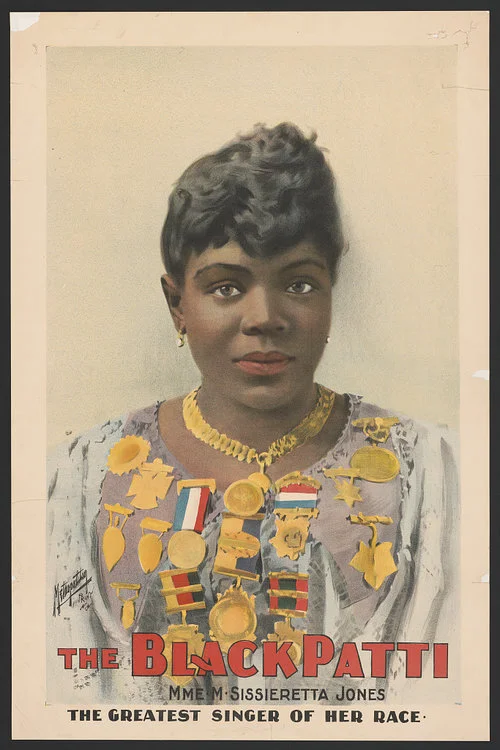Overlooked No More: Sissieretta Jones, a Soprano Who Shattered Racial Barriers
The legendary black singer Sissieretta Jones (1868-1933) was featured in the New York Times series of obituaries of remarkable, but overlooked, women in American history on August 15, 2018.
Backstory: Czech Composer Antonín Dvořák and New York music impresario Jeannette Thurber played an important role in catapulting the singer to fame in a newsmaking 1894 Madison Square Garden concert. The event, organized by Thurber as a fundraiser for the New York Herald Clothing Fund, featured black soloists, students, and the orchestra of the National Conservatory of Music of America, the institution Thurber founded and oversaw as President. Dvořák, the Conservatory Director appointed by Thurber, conducted at the concert, and Jones was a soloist. The previous year Jones was the first black singer to headline a concert at prestigious Carnegie Hall.
Thurber broke barriers by offering full scholarships to students with musical talent - including African-Americans, women, and the physically disadvantaged - as part of her mission. She invited Dvořák to become Director of the Conservatory from 1892 to 1895 to help jump-start an American school of composition, and he in turn recognized "Negro spirituals" as the true folk music of America and a rich source of musical themes. He captured the deep feeling of such melodies in the famous Largo, the slow movement of his Symphony "From the New World," which was later set to words by William Arms Fisher, a student of his, as a spiritual titled "Goin' Home."
By Majda Kallab Whitaker
Image Credit: Sissieretta Jones, Metropolitan Printing Co., 1899; Library of Congress, Prints and Photographs Online Catalog
